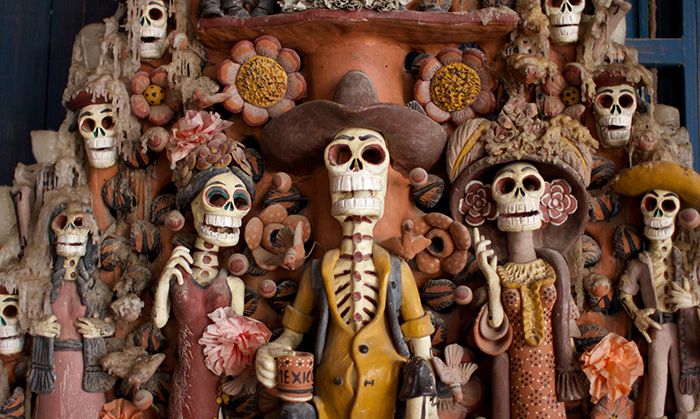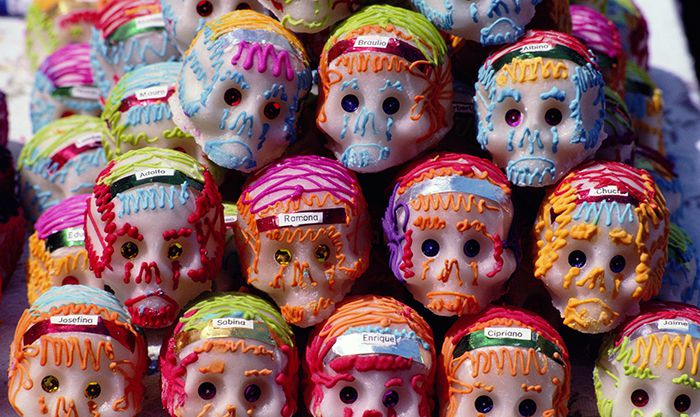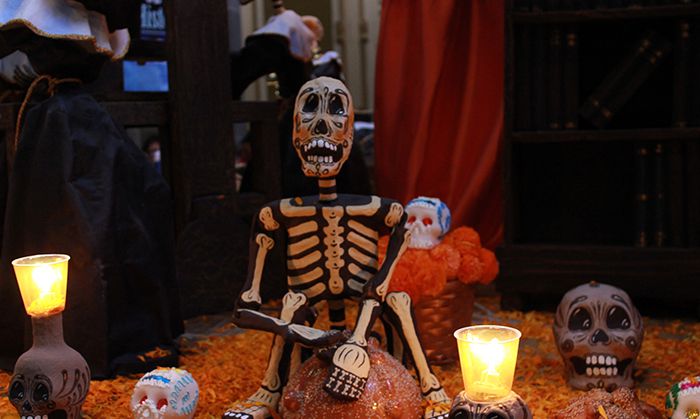世界鬼节:墨西哥万圣节——“亡灵节”

Mexico—Los Dias de los Muertos (the days of the dead), sugared skulls and other delights
墨西哥——“亡灵节”,糖骷髅头和其他乐趣

The Mexican Days of the Dead Festival shares some of its origins with Halloween. And some of the practices today are also similar, from decorating with pictures of skeletons, to ghoulishly shaped sweets. The Aztecs’ Festival of the Dead went on for nearly two months in which the fall harvest was celebrated and death was honored. Aztecs and Mayans both believed that one day of the year the souls of the departed would return to the realm of the living, where they could visit their families and loved ones.
墨西哥“亡灵节”和“万圣节”的起源有部分相同。现在有些活动仍然相似,如装饰骷髅图片、形状可怕的糖果等。这个阿兹特克人的节庆持续近两个月,庆祝秋收,纪念亡灵。阿兹特克人和玛雅人都相信一年中有一天,已经离去的灵魂会重返人间探望家人和亲人。

Families place photographs of their loved ones who have passed on at the deceased’s gravesite or on a family altar. They also place offerings of flowers, drinks and food alongside the photographs. This ritual is particularly important for those who have been lost in the year since the previous festival. Sweets, fruits, and other foods are joined by the staples: bread, salt, and water. Grooming supplies, such as a washbasin and soap, are provided for the spirits to tidy themselves after their long journey.
家人把逝者的照片放在TA的坟墓上或者家里的供桌上。照片旁边还会放上花、饮品和食物。对于上一年亡灵节之后刚去世的人来说这个仪式尤为重要。糖果、水果和其他食物也和主食(面包、盐和水)放在一起。还有一些洗漱用品,比如脸盆和肥皂,鬼魂在长途跋涉之后可以清洗一下。
声明:本双语文章的中文翻译系爱思英语原创内容,转载请注明出处。中文翻译仅代表译者个人观点,仅供参考。如有不妥之处,欢迎指正。